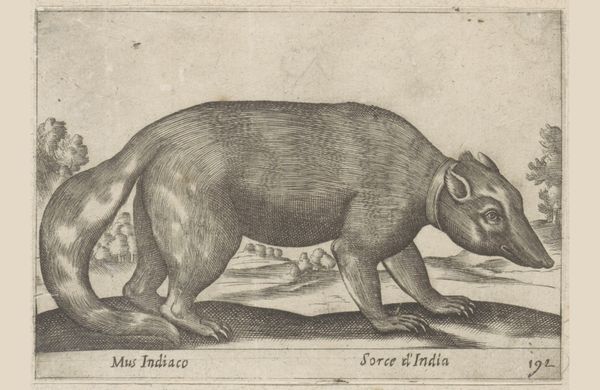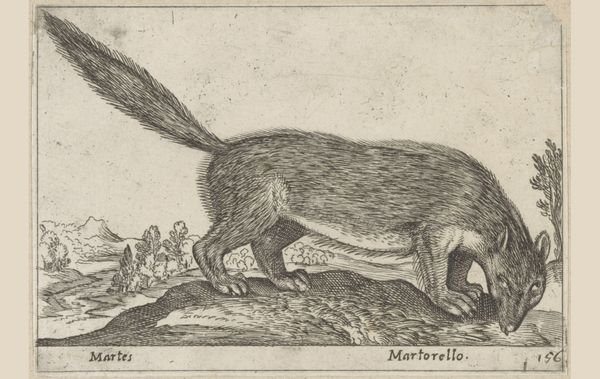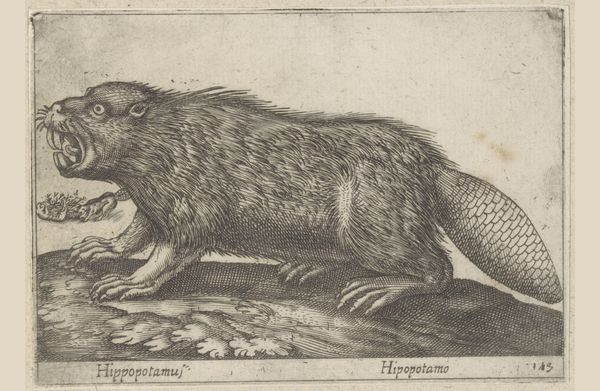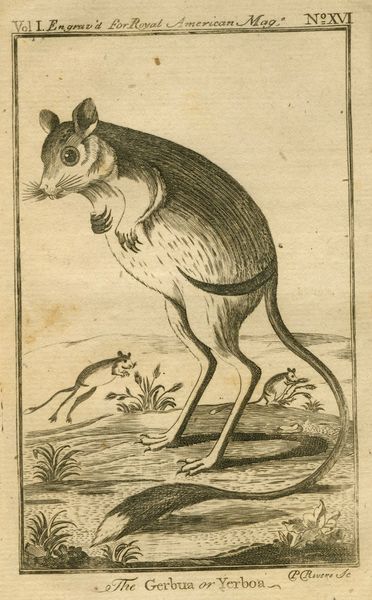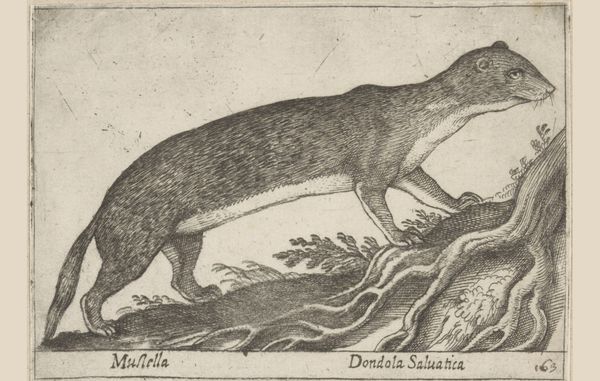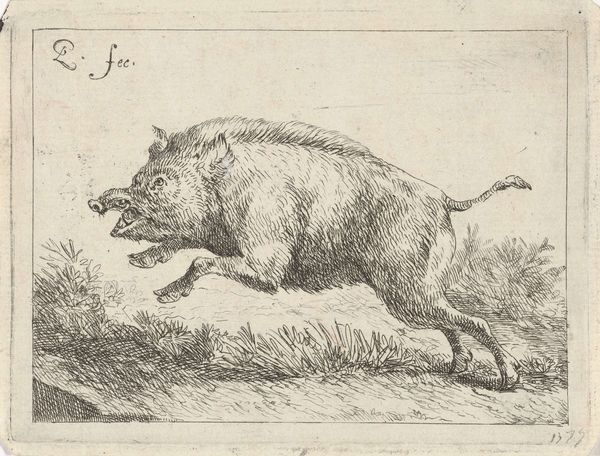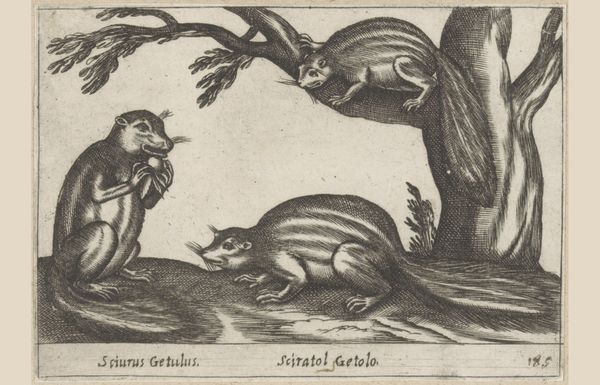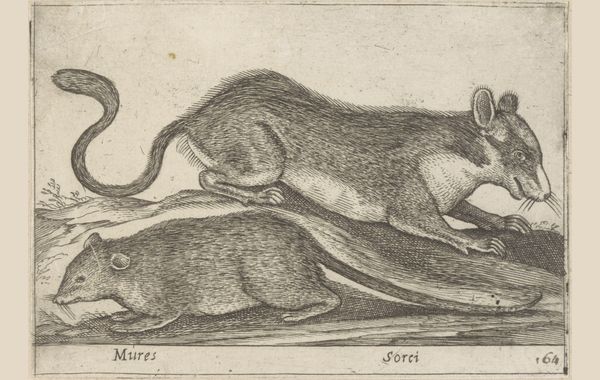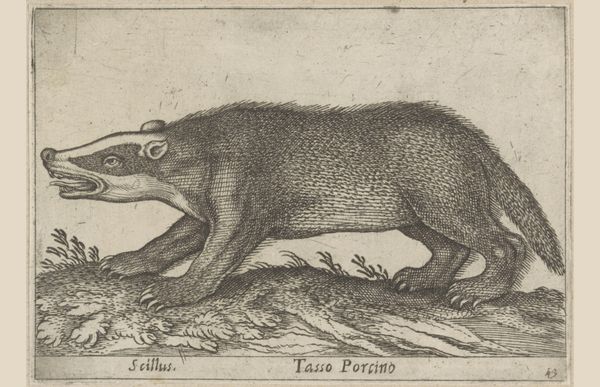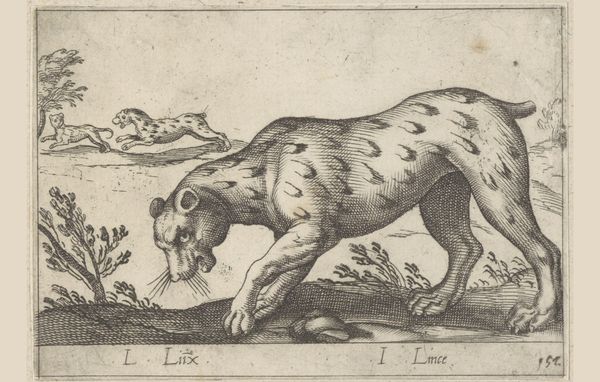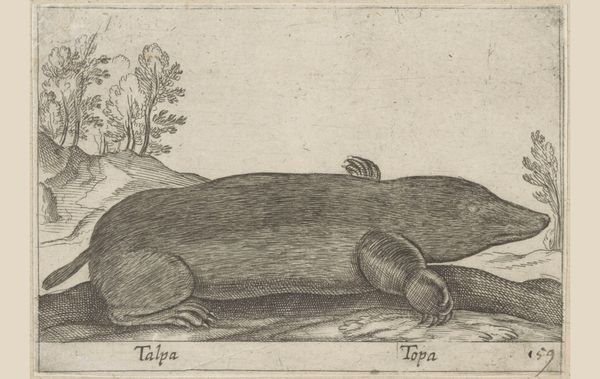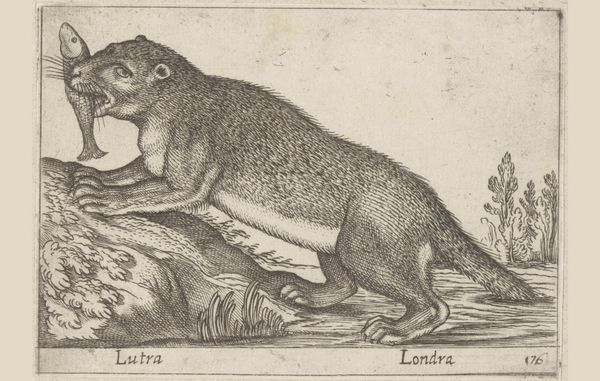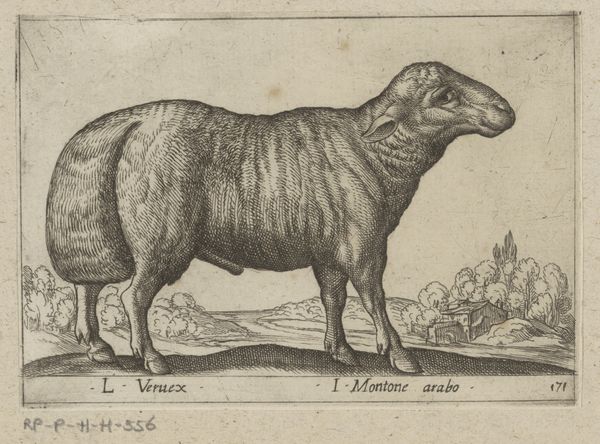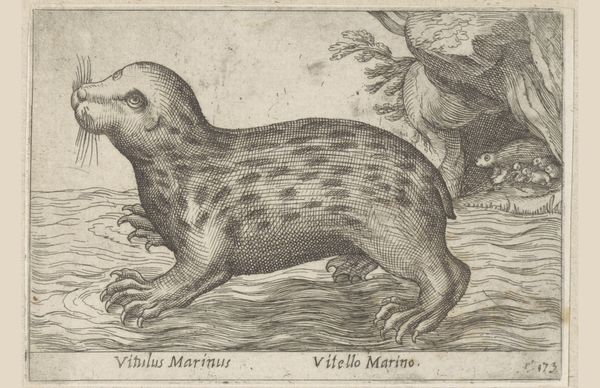
print, engraving
# print
#
old engraving style
#
engraving
#
realism
Dimensions: height 95 mm, width 137 mm
Copyright: Rijks Museum: Open Domain
Antonio Tempesta etched this depiction of a Hazel Dormouse in the late 16th or early 17th century. The dormouse, known for its hibernation, is steeped in symbolic associations across cultures, embodying themes of sleep, dreams, and the cyclical nature of life. We observe the dormouse resting upon a log, a pose reminiscent of ancient depictions of mythical creatures in repose. Consider the image of the sleeping Ariadne, abandoned on the shore, a theme echoed in later works like Klimt's "Danaë," where the sleeping figure embodies a subconscious state, pregnant with possibility. This motif of dormancy has morphed through time, linking the ancient and the modern in a continuous thread of human expression. Like the figures in a dream, the dormouse's quiet posture invites reflection, tapping into our collective memory of nature's rhythms. The image evokes a profound sense of stillness, a quiet invitation to contemplate the mysteries that lie dormant within ourselves. It reflects our own periods of withdrawal and renewal.
Comments
No comments
Be the first to comment and join the conversation on the ultimate creative platform.
